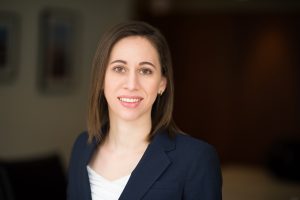ELBIT SYSTEMS LAND AND C4I LTD. v. HUGHES NETWORK SYSTEMS, LLC
Before Taranto, Mayer, and Chen. Appeal from the United States District Court for the Eastern District of Texas.
Summary: Neither 28 U.S.C. § 1295 nor 28 U.S.C. § 1292(c)(2) provide appellate jurisdiction to review an attorney fees award if the amount of attorney fees has not yet been quantified.
Elbit Systems Land and C4I Ltd. and Elbit Systems of America, LLC (collectively “Elbit”) sued Hughes Network Systems, LLC for patent infringement. The jury found certain asserted claims were infringed and not invalid, and it awarded damages. The district court found that the case was exceptional due to Hughes’ litigation conduct and that Elbit was entitled to attorney’s fees. The district court did not quantify the amount of attorney’s fees.
Hughes appealed the infringement finding, damages award, and exceptionality determination. The Federal Circuit affirmed the district court’s decision regarding infringement and damages and dismissed Hughes’ appeal with respect to the district court’s exceptionality finding.
The Federal Circuit held that there was substantial evidence to support the jury’s infringement finding and damages award. Specifically, the Federal Circuit noted that the jury could permissibly find that Hughes’ products infringed upon certain asserted claims based on expert testimony from both parties. Elbit also provided expert testimony on an appropriate damages award based on a previous, similar settlement while Hughes did not introduce any expert testimony of its own on the subject.
With respect to the district court’s unquantified attorney fees award, the Federal Circuit held that it lacked jurisdiction to review the finding. Citing the Supreme Court’s decision in Budinich v. Becton Dickinson & Co., 486 U.S. 196 (1988), the Federal Circuit held that 28 U.S.C. § 1295 could not provide the basis for jurisdiction because a determination of entitlement to fees is not a reviewable final decision until quantification of the fee award. The Federal Circuit also noted that 28 U.S.C. § 1292(c)(2), which authorizes review of a judgment that is final except for an accounting, could not provide jurisdiction to review in view of Budinich because the statute does not authorize review of fees rulings and fees are not part of an “accounting” under the statute.
Editor: Paul Stewart
